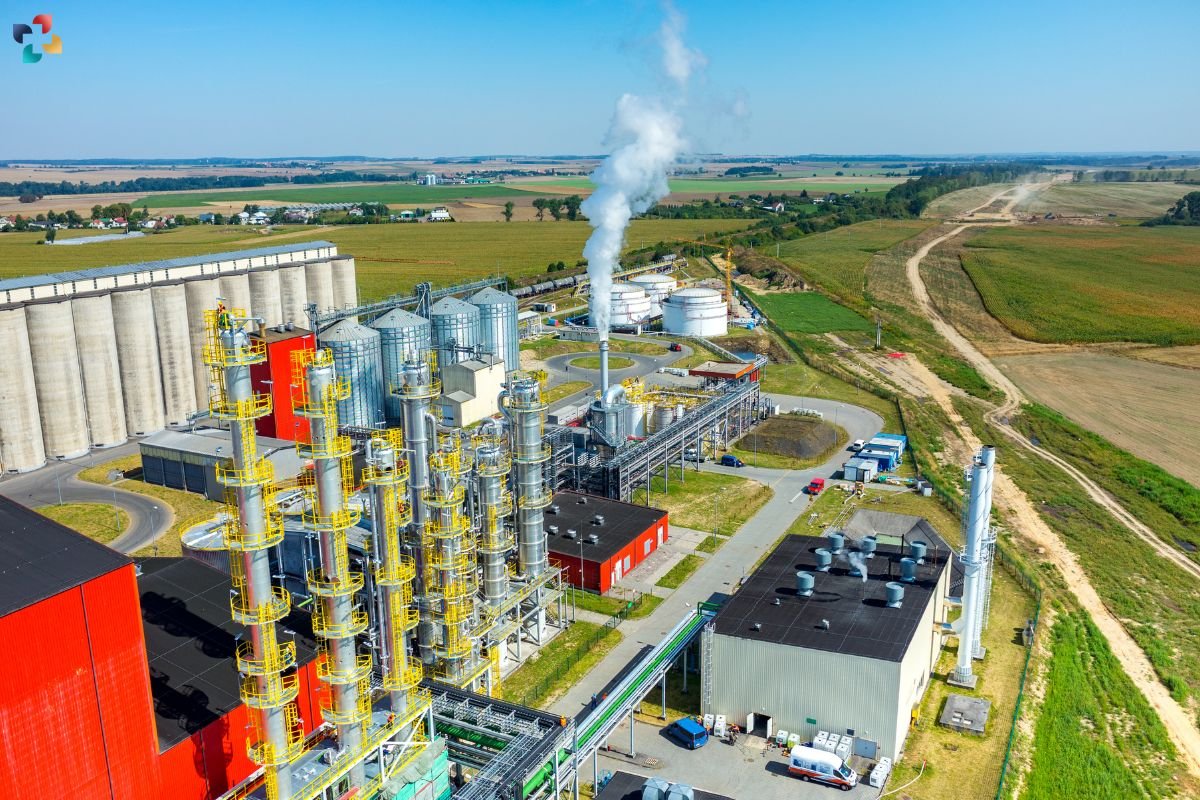In the pursuit of sustainable energy sources, ethanol biofuel has emerged as a promising contender, offering a renewable alternative to fossil fuels. Derived primarily from agricultural crops such as corn, sugarcane, and soybeans, ethanol biofuel presents a viable solution to reducing greenhouse gas emissions and mitigating environmental impact. This article delves into the intricacies of ethanol, exploring its production process, benefits, challenges, and its role in shaping the future of energy consumption.
Exploring Ethanol Biofuel:
Ethanol, often referred to simply as ethanol, is a renewable fuel produced through the fermentation of sugars found in organic materials. These sugars are predominantly sourced from crops like corn, sugarcane, and soybeans, making ethanol biofuel a sustainable alternative to traditional fossil fuels. The production process involves the conversion of biomass into ethanol through fermentation and distillation, resulting in a clean-burning fuel that can be used to power vehicles, generators, and other machinery.
Benefits of Ethanol Biofuel:

- Reduced Greenhouse Gas Emissions: Ethanol biofuel boasts lower carbon emissions compared to conventional gasoline, making it an environmentally friendly option for combating climate change.
- Renewable Energy Source: Unlike finite fossil fuels, ethanol is derived from renewable biomass, ensuring a continuous and sustainable energy supply.
- Economic Opportunities: The production of ethanol biofuel stimulates economic growth by creating jobs in agriculture, manufacturing, and research sectors.
- Energy Security: By diversifying our energy sources, ethanol enhances energy security, reducing dependence on imported oil and volatile fuel markets.
- Improved Air Quality: Ethanol burns cleaner than gasoline, resulting in reduced air pollutants and improved air quality in urban areas.
Challenges Facing Ethanol Biofuel:
Despite its numerous benefits, ethanol also faces several challenges that warrant consideration:
- Land Use Competition: The cultivation of crops for ethanol production may compete with food production, raising concerns about food security and land usage.
- Energy Intensive Production: The production process of ethanol biofuel requires significant energy inputs, potentially offsetting some of its environmental benefits.
- Feedstock Availability: The availability and affordability of feedstocks, such as corn and sugarcane, can fluctuate due to weather conditions, market demands, and competing uses.
- Infrastructure Compatibility: The widespread adoption of ethanol biofuel necessitates infrastructure upgrades and modifications to accommodate its distribution and usage.
- Environmental Impact: While ethanol biofuel reduces greenhouse gas emissions compared to gasoline, its production and transportation can still have environmental consequences, such as habitat destruction and water pollution.

Ethanol Biofuel in the Global Context:
The adoption of ethanol biofuel is not confined to a single region or nation; it is a global phenomenon driven by the urgent need to transition towards cleaner and more sustainable energy sources. Countries around the world are increasingly investing in ethanol production and promoting its use as part of their broader renewable energy strategies. Brazil, for instance, has been a pioneer in ethanol production, utilizing sugarcane as a primary feedstock and achieving significant reductions in carbon emissions from transportation. Similarly, the United States has emerged as a major player in ethanol production, primarily using corn as a feedstock and blending ethanol into gasoline to reduce emissions and enhance octane ratings.
Moreover, ethanol has garnered attention as a viable alternative to fossil fuels in both developed and developing economies. The European Union has set ambitious targets for renewable energy adoption, including mandates for biofuel usage in transportation, driving investments in ethanol production and infrastructure. In emerging economies like India and China, the demand for ethanol biofuel is on the rise due to concerns about air pollution, energy security, and climate change. As a result, governments are implementing policies to incentivize ethanol production, promote fuel blending, and accelerate the deployment of ethanol-compatible vehicles and infrastructure.

Looking Ahead: Innovations and Opportunities
The future of ethanol biofuel hinges on continuous innovation, technological advancements, and collaborative efforts across sectors. Research and development initiatives are focused on enhancing the efficiency of ethanol production processes, expanding the range of feedstocks, and improving the overall sustainability of biofuel production. Advanced biofuels, including cellulosic ethanol derived from non-food biomass sources such as agricultural residues and dedicated energy crops, hold promise for further reducing carbon emissions and minimizing competition with food production.
Furthermore, advancements in biotechnology, genetic engineering, and fermentation techniques are opening up new possibilities for optimizing ethanol yields, reducing production costs, and enhancing the environmental performance of biofuel production. Integrated biorefineries that produce multiple products from biomass, such as ethanol, bio-based chemicals, and animal feed, are emerging as a sustainable approach to maximizing the value of renewable resources and minimizing waste.
In addition to technological innovations, the scaling up of ethanol production and distribution infrastructure is essential for realizing the full potential of biofuels as a mainstream energy source. Investments in storage facilities, transportation networks, fueling stations, and flex-fuel vehicles are critical for expanding the market penetration of ethanol biofuel and ensuring its accessibility to consumers worldwide. Public-private partnerships, incentive programs, and regulatory frameworks play a pivotal role in facilitating the growth of the ethanol industry and fostering a supportive ecosystem for sustainable bioenergy development.
Conclusion:
Ethanol biofuel represents a convergence of environmental stewardship, energy security, and economic prosperity. As the world grapples with the challenges of climate change, resource depletion, and geopolitical instability, ethanol offers a tangible solution that is both practical and scalable. By harnessing the power of renewable biomass resources, we can reduce our reliance on fossil fuels, mitigate greenhouse gas emissions, and create a more resilient and sustainable energy future for generations to come.
In the journey towards a carbon-neutral economy, ethanol serves as a beacon of hope, demonstrating that sustainable alternatives to conventional energy sources are within reach. By embracing innovation, collaboration, and bold policy action, we can unlock the full potential of ethanol and usher in a new era of clean, renewable energy. Together, let us chart a course towards a future where ethanol powers our vehicles, sustains our economies, and preserves our planet for future generations.

10 Best Sustainable Healthcare Innovations
Hospitals and the Sustainable Healthcare Innovations sector as a whole are making strides in operating in a manner that is more environmentally friendly. Because of the necessity to disinfect the equipment used in the sector, it generates a significant amount of trash.
FAQs about Ethanol Biofuel:
Q1: Is ethanol biofuel compatible with existing vehicles?
Ans: Yes, ethanol can be used in most modern vehicles with little to no modification, as it is compatible with existing gasoline engines.
Q2: How does ethanol production impact food prices?
Ans: The production of ethanol from food crops can influence food prices by affecting supply and demand dynamics. However, advancements in ethanol production technology aim to minimize these impacts through the use of non-food feedstocks.
Q3: Is ethanol biofuel cost-effective compared to gasoline?
Ans: The cost-effectiveness of ethanol biofuel varies depending on factors such as feedstock prices, government subsidies, and infrastructure availability. In some regions, ethanol may be more cost-competitive than gasoline, while in others, it may require subsidies to remain competitive.
Q4: Can ethanol biofuel be produced sustainably?
Ans: Yes, ethanol can be produced sustainably by utilizing advanced agricultural practices, optimizing production processes, and minimizing environmental impacts such as land use change and water consumption.
Q5: What is the future outlook for ethanol biofuel?
Ans: The future of ethanol hinges on continued technological advancements, supportive government policies, and evolving consumer preferences towards sustainable energy solutions. As renewable energy sources gain traction, ethanol biofuel is poised to play a significant role in our transition towards a greener and more sustainable future.











